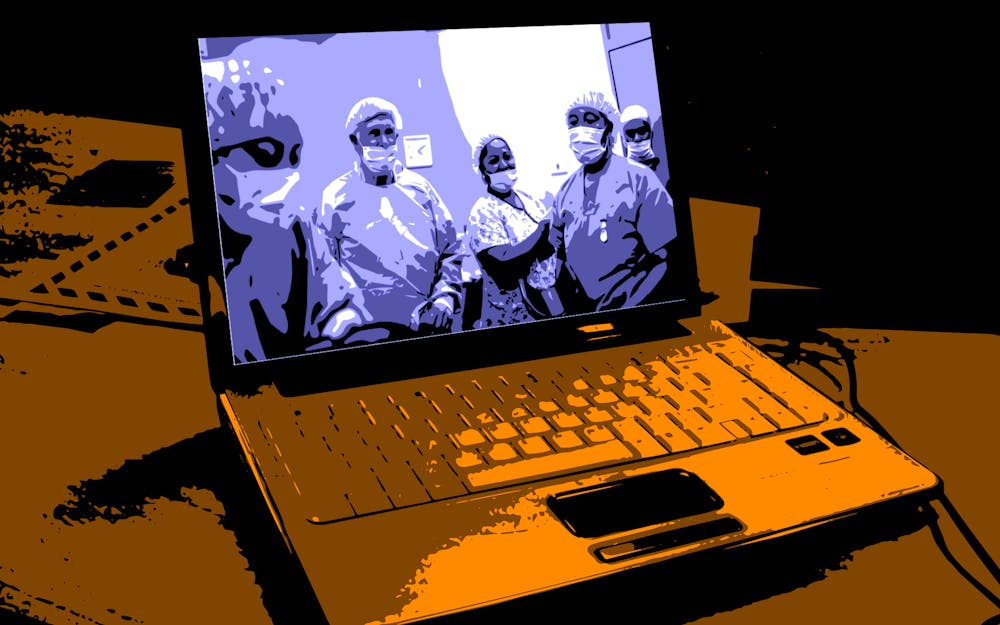Indiana House bill 1577 introduces regulations on abortion services and telemedicine. The bill, which was referred to the Senate on Feb. 23, would make access to abortions more difficult, legal and medical experts said.
IUPUI associate professor of law Seema Mohapatra said states are continuing to introduce legislation placing restrictions on abortion, and with the current composition of the court and recent cases, even when it is challenged, likely will be upheld.
Mohapatra said almost every aspect of the Indiana bill limits abortion services and, if passed, would decrease access to abortions, especially for the most poor and vulnerable Hoosiers.
“This Supreme Court is probably going to uphold these laws, which really harms poor people and people of color the most, because those are the people that are most at risk of not having access to abortion care,” Mohapatra said.
The bill, if passed, would more strictly regulate abortion-inducing drugs and information. The bill would also add additional parental consent requirements and eliminate the use of telemedicine services for abortion. Mohapatra said she believes this bill will pass based on Indiana’s history of abortion legislation.
Related: [State order prompts concerns about access to abortion during coronavirus pandemic]
A medication-induced abortion commonly uses two drugs to expel a pregnancy, clinical professor at IU School of Medicine Dr. Caitlin Bernard said. Bernard said she was not speaking on behalf of IU School of Medicine.
The process includes two medications, Bernard said. First the drug, Mifepristone is taken and separates the pregnancy from the uterus wall, Bernard said. A second drug, Misoprostol, which causes contractions in the uterus and expels the pregnancy, is taken 24 to 48 hours later.
House bill 1577 would ban the use of these drugs in women who are eight weeks into term or later, which Barnard says would only decrease access to abortion medication.
“Any type of a restriction on the length of time in a pregnancy that this medication can be used means that there is going to be decrease in access, especially for those people for whom it's more challenging to get to a clinic in the first place,” Bernard said.
Bernard also said physicians are required to read state-mandated scripts about abortion. These scripts, she said, are often filled with inaccurate information, like requirements to inform patients about abortion reversal agents.
Abortion reversal agents, Bernard said, are not medically sound treatments and not something she would recommend. She said there have been studies that have shown abortion reversal to be potentially dangerous.
“It requires us to tell them things that are not medically accurate and that are really designed to try to change their mind about going through the abortion and, again, there's no other area of medicine that does that,” Bernard said.
The bill would require physicians to inform patients about the possibility of an abortion-inducing drug’s effects being reversed if the second dose isn’t taken. Bernard said if a patient doesn’t take the second medication there’s only about a 50% chance the medication will fail, allowing the pregnancy to continue. Bernard said these drugs have a low risk of complications and a high success rate when taken as recommended.
“When they have compared the continuation of a pregnancy when they give the abortion reversal medication, compared to when you only take the first dose and don't take the medication abortion reversal, that is the same effectiveness,” Bernard said.
The bill would also require written parental consent to be notarized for a minor to have an abortion, which Jody Madeira, professor of law at IU, said is an additional hurdle.
“The real question is, do they require parental consent or not,” Madeira said. “But now there is an additional hurdle that they have to fulfill which is actually finding a public notary.”
House bill 1577 also prohibits the use of telemedicine to provide any abortion, including writing and filling prescriptions that are meant to result in an abortion.
Madeira said it’s odd for the state to differentiate abortion in relation to telemedicine and say it’s less necessary than other medical procedures, like substance use disorder treatment, which can be conducted via telemedicine.
Katie Blair, director of advocacy and public policy at the ACLU of Indiana, said she believes legislators are making it more difficult for women to access abortion to advance political agendas.
“Reproductive health care, including abortion, should be safe and available to those who need it and not restricted by certain politicians who want to ban abortions,” Blair said. “And that's what this is, just another piece of legislation that does just that.”






